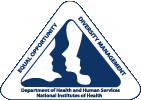Policy Statement on ReprisalJune 22, 2004 To: All NIH Employees From: Director, NIH Subject: Policy Statement on Reprisal On May 15, 2002, President George W. Bush signed into law the Notification and Federal Employee Anti-discrimination and Retaliation Act of 2002 (No FEAR Act), Public Law 107-174. The intent of the No FEAR Act, which became effective on October 1, 2003, is to hold federal agencies more accountable for violations of anti-discrimination and whistleblower protection laws. To ensure such accountability, I am reiterating the NIH policy on reprisal and renewing my commitment to promoting and maintaining a work environment free from discrimination and retaliation. This policy supersedes the January 4, 2000, policy statement on reprisal issued by the Acting Director, NIH. It is NIH policy to ensure that employees are notified of their right to discrimination and whistleblower protection. This includes being free both to use the EEO complaint process and to file whistle-blowing charges without fear of retribution. Reprisal, in addition to being illegal, has a negative effect on the productivity of work life, employee well-being, and morale. Therefore, I expect all NIH supervisors and managers to renew their commitment to respect employees’ rights so that employees are empowered to report charges of fraud, waste, mismanagement, and discrimination without fear of reprisal. Any supervisor or manager found to have engaged in reprisal will be disciplined in accordance with the NIH Table of Offenses and Penalties. Reprisal for participation in the EEO process is prohibited by EEOC Regulation, 29 CFR 1614, which provides, “No person shall be subject to retaliation for opposing any practices made unlawful by Title VII of the Civil Rights Act, the Age Discrimination in Employment Act, the Equal Pay Act, or the Rehabilitation Act, or for participating in any stage of administrative or judicial proceedings under those statutes.” Any employee who wishes to file an EEO complaint of reprisal may contact the NIH Office of Equal Opportunity and Diversity Management (OEODM) within 45 calendar days of the alleged occurrence(s) of retaliation discrimination. Whistle-blowing protection is not within the purview of EEO laws and statutes. An employee, former employee, or applicant for employment may seek corrective action from the Merit Systems Protection Board (MSPB) regarding any personnel action that is proposed or taken against the individual as a result of whistleblowing, as defined in 5 U.S.C. 2302(b)(8). Further information about filing whistleblower claims is available on the MSPB Web site at www.mspb.gov. Adherence to this policy will help create a work environment free of discrimination and retaliation. /s/ Elias A. Zerhouni, M.D. |
Office of Equal Opportunity
& Diversity Management
U.S. Department of Health & Human Services
National Institutes of Health





